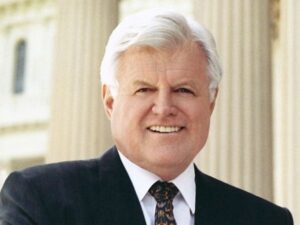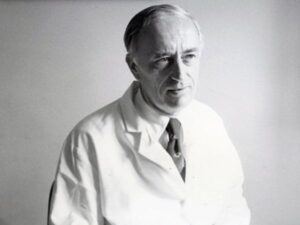Letter to the editor by Donald L. “Skip” Trump, MD, and Eric T. Rosenthal, coauthors of Centers of the Cancer Universe: A Half-Century of Progress Against Cancer
When Peter Pisters returned to The University of Texas System as president of MD Anderson Cancer Center in December 2017, one of his top priorities included achieving gender parity and diversifying the hospital’s executive suite.
On April 25, 1991, speaking to the Senate Labor and Human Resources Committee, Sen. Edward M. Kennedy opened the National Cancer Act’s 20th anniversary hearing with praise for advances in research, concerns about cancer disparities, and a battle cry: “The War on Cancer is far from won.”
Two academic health systems in Cleveland are creating programs and faculty positions to direct institutional initiatives on health equity—at the executive level.
On a June day in 2002, Roy Jensen, a pathologist at Vanderbilt-Ingram Cancer Center, was back home in the Kansas City environs, taking his young sons to basketball camp in Lawrence.
The battle over which institution gets to call itself the first cancer center is extremely complex—in part because the contenders predate NCI’s definition of a “cancer center.”
A recent analysis of the National Cancer Institute’s workforce and grant recipients shows that Black and Hispanic scientists are dramatically underrepresented across key metrics, both intramural and extramural.
Robust and effective mentorship is imperative to building a successful career in academic medicine.
John F. Potter, founder of the Georgetown Lombardi Comprehensive Cancer Center, died June 28, at MedStar Georgetown University Hospital, the site of his greatest professional triumphs. He was 95.
To launch our July coverage highlighting institutions, here is a collection of articles by our contributors about their history.















